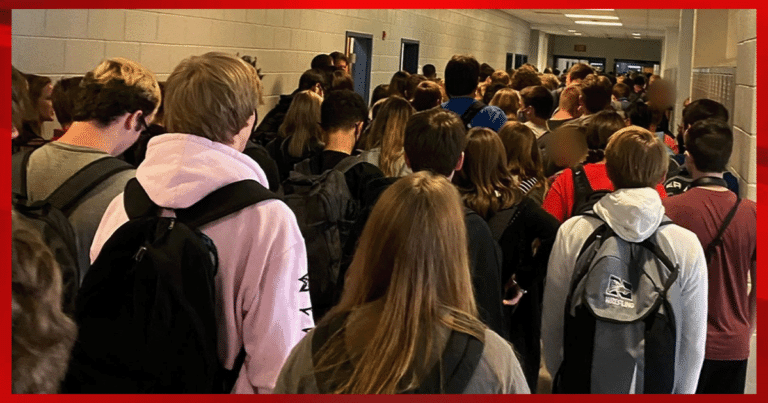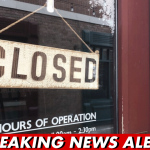
There was a time when schools were just about teaching kids facts, not filtering their voices. You showed up, learned grammar, maybe messed up a math test or two—but you didn’t get punished for using plain language people have used forever.
Now? You can get in trouble for saying something that might “offend” someone—even if it’s legally accurate, contextually relevant, and, well, true. That’s exactly what happened to one high schooler in North Carolina. But this story doesn’t end in silence—it ends in a courtroom with a check. Let’s just say, this school learned the First Amendment isn’t optional.
From ‘The Post Millennial’:
A North Carolina high school student who was suspended for using the term “illegal aliens” during a class discussion is set to receive a public apology and $20,000 in a legal settlement from the school district.
On Tuesday, the US District Court for the Middle District of North Carolina finalized the agreement between 16-year-old Christian McGhee and Davidson County Schools, resolving a year-long legal battle over the student’s suspension. McGhee was suspended in April 2024 after reportedly asking during an English class discussion, “Do you mean space aliens or illegal aliens who need green cards?” The school imposed a three-day suspension and marked his permanent record with a note for “racially insensitive behavior.”
Sixteen-year-old Christian McGhee did something crazy in 2024—he asked a question. During an English class discussion, he tried to clarify a term by saying, “Do you mean space aliens or illegal aliens who need green cards?” Logical, right? The school didn’t think so.
Instead of treating it like a basic vocabulary moment, the school gave him a three-day suspension. Worse? They slapped a note on his permanent record for “racially insensitive behavior.” Over six words. You can’t make this stuff up.
So Christian and his family filed a lawsuit. Fast forward to July 2025—a federal judge sided with the teen. The Davidson County school district was forced to pony up $20,000, issue a public apology, and scrub the bogus disciplinary record clean. President Trump even gave Christian a letter of recommendation to help him score a college athletic scholarship.
Constitutional Rights Still Apply In A Classroom
This case wasn’t about a bad joke or actual hate speech. It was a kid saying a phrase the immigration courts use all the time. But the school saw an opportunity to flex their “sensitivity training” muscles. They lost.
Sarah Parshall Perry, a legal fellow at Defending Education, said it best: “Students do not shed their free speech rights at the schoolhouse gate.” That’s Supreme Court doctrine. Apparently the school never got the memo.
Want to know how deep this rot goes? It took a yearlong legal battle to confirm a public-school kid has a right to speak honestly without being labeled a bigot. That’s not education. That’s indoctrination in disguise.
Woke Bureaucrats Are The New Hall Monitors
Here’s the real kicker: McGhee didn’t even issue a statement. It wasn’t a rant. It was a clarifying question. But the district still punished him like he’d committed verbal arson.
This is what happens when the people running your schools care more about political correctness than preparing students for life. They’ve turned classrooms into speech-policing zones where truth is scary and “hurt feelings” are treated like felonies.
They aren’t teaching kids anymore. They’re teaching them to self-censor.
Accountability Costs Money—And Districts Better Get Ready
Let’s be honest—$20,000 might not sink a district’s budget, but the bigger cost is public trust. If administrators are this quick to punish a student using standard legal terms, how many other kids are afraid to speak?
Christian’s victory is a signal to every parent, student, and taxpayer: fight back and you can win. No more backing down just because someone with a clipboard says your speech makes them “uncomfortable.” The next generation isn’t a lab experiment for social engineering.
Key Takeaways
- A North Carolina teen was suspended for saying “illegal aliens” during class discussion.
- A federal court ruled in his favor, awarding $20,000 and a formal apology.
- The case highlights a growing trend of woke censorship in public education.
- Parents and students can—and should—push back when schools trample constitutional rights.
Sources: The Post Millennial


